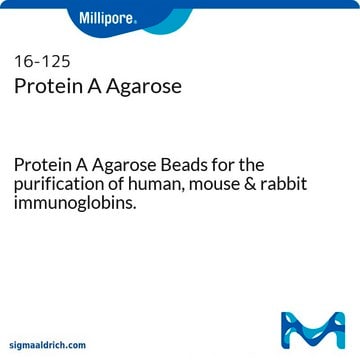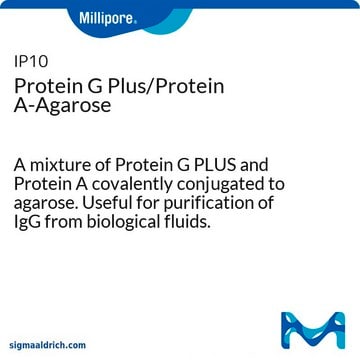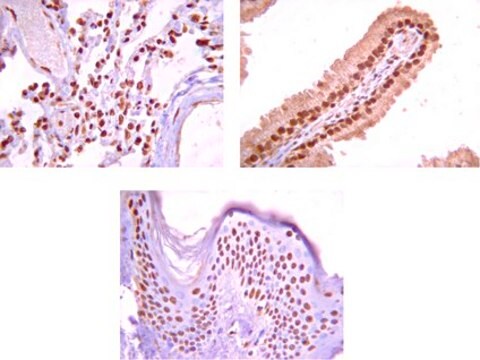The presence of FBS in the cell culture supernatant containing IgG2b may lead to reduced yield and purity of the mAb, IgG2b, as FBS contains bovine immunoglobulins that can compete with the target antibody for binding to the protein G column.
16-266
Protein G Agarose, Fast Flow
Protein G Agarose, Fast Flow suitable for medium and low pressure chromatography of IgG from mouse, sheep, and rabbit, and for immunoprecipitations.
Szinonimák:
Protein G resin
Méret kiválasztása
266 000,00 Ft
Szállítás becsült dátuma2025. február 03.részletek
Méret kiválasztása
About This Item
266 000,00 Ft
Szállítás becsült dátuma2025. február 03.részletek
Javasolt termékek
Forma
liquid
gyártó/kereskedő neve
Upstate®
technika/technikák
affinity chromatography: suitable
immunoprecipitation (IP): suitable
western blot: suitable
kiszállítva
wet ice
Általános leírás
Alkalmazás
Minőség
Fizikai forma
Tárolás és stabilitás
Jogi információk
Jogi nyilatkozat
Figyelmeztetés
Warning
Figyelmeztető mondatok
Óvintézkedésre vonatkozó mondatok
Veszélyességi osztályok
Flam. Liq. 3
Tárolási osztály kódja
3 - Flammable liquids
WGK
WGK 1
Lobbanási pont (F)
116.6 °F
Lobbanási pont (C)
47 °C
Analitikai tanúsítványok (COA)
Analitikai tanúsítványok (COA) keresése a termék sarzs-/tételszámának megadásával. A sarzs- és tételszámok a termék címkéjén találhatók, a „Lot” vagy „Batch” szavak után.
Már rendelkezik ezzel a termékkel?
Az Ön által nemrégiben megvásárolt termékekre vonatkozó dokumentumokat a Dokumentumtárban találja.
Az ügyfelek ezeket is megtekintették
-
Is the 16-266 protein G column compatible with purifying IgG in the presence of FBS when purifying mAb, IgG2b, from cell culture supernatant containing FBS?
1 answer-
Helpful?
-
-
What is the approximate diameter of each agarose bead?
1 answer-
The diameter range of 4% beaded agarose typically falls between 50 to 165 micrometers.
Helpful?
-
Active Filters
Tudóscsoportunk valamennyi kutatási területen rendelkezik tapasztalattal, beleértve az élettudományt, az anyagtudományt, a kémiai szintézist, a kromatográfiát, az analitikát és még sok más területet.
Lépjen kapcsolatba a szaktanácsadással









